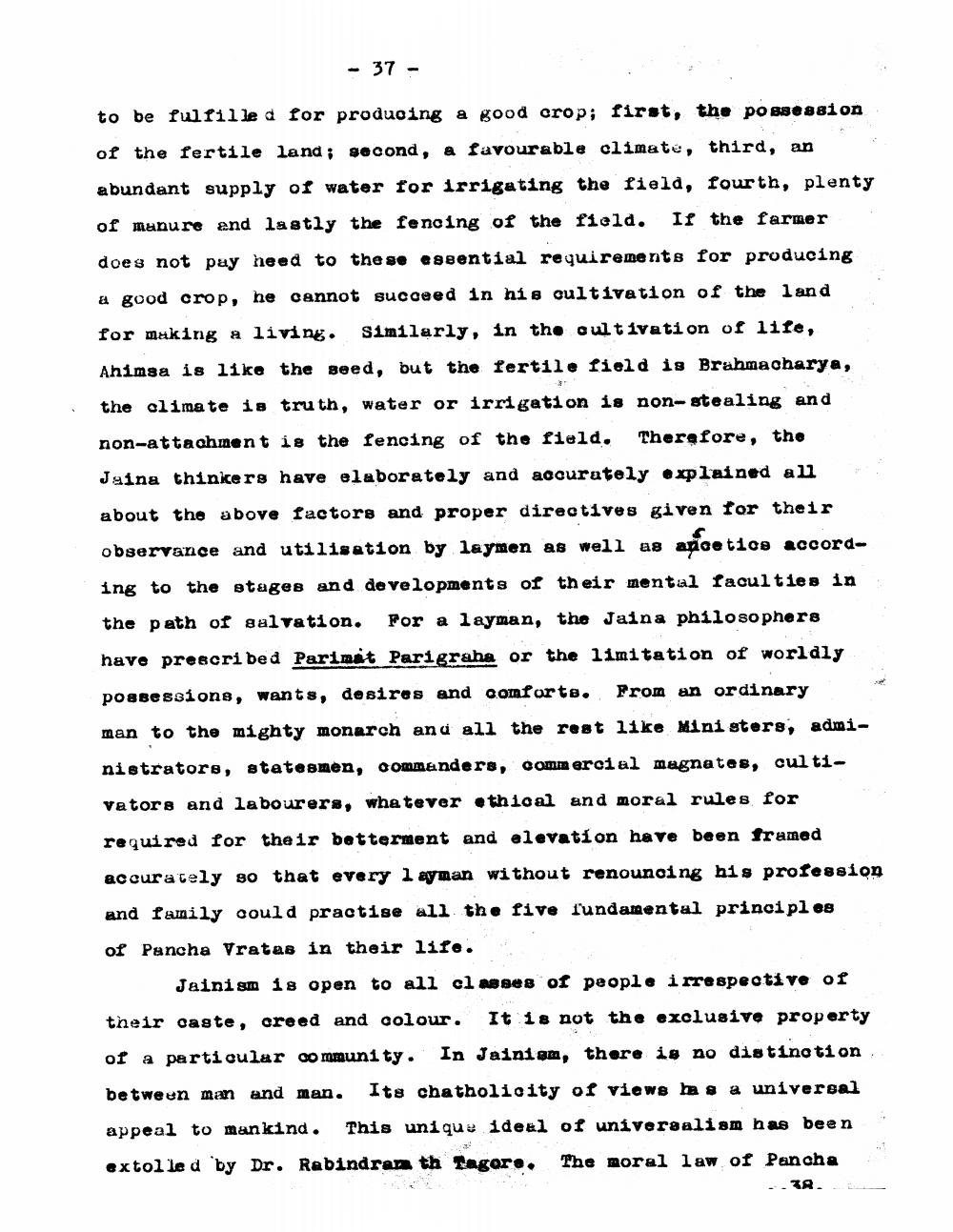________________ - 37 - to be fulfilled for producing a good crop; first, the possession of the fertile land ; second, a favourable climate, third, an abundant supply of water for irrigating the field, fourth, plenty of manure and lastly the fencing of the field. If the farmer does not pay need to the se essential requirements for producing a good crop, he cannot succeed in his cultivation of the land for making a living. Similarly, in the cultivation of life, Ahimsa is like the seed, but the fertile field is Brahmacharya, the climate 18 truth, water or irrigation is non- stealing and non-attachment is the fencing of the field. Therafore, the Jaina thinkers have elaborately and accurately explained all about the above factors and proper directives given for their observance and utilisation by laymen as well ce according to the stages and developments of their mental faculties in the path of salvation. For a layman, the Jaina philosophers have prescribed Parimat Parigrana or the limitation of worldly possessions, wants, desires and comforts. From an ordinary man to the mighty monarch and all the rest like Ministers, administrators, statesmen, commanders, commercial magnates, cultivators and labourers, whatever ethical and moral rules for required for their betterment and elevation have been framed accurately so that every lwman without renouncing his profession and family could practise all the five fundamental principles of Pancha Vrates in their life. Jainism is open to all classes of people irrespective of their caste, creed and colour. It is not the exclusive property of a particular community. In Jainism, there is no distinction. between man and man. Its chatholicity of views has a universal appeal to mankind. This unique ideel of universalism has been extolled by Dr. Rabindraz th Tagore, The moral law of Pancha




